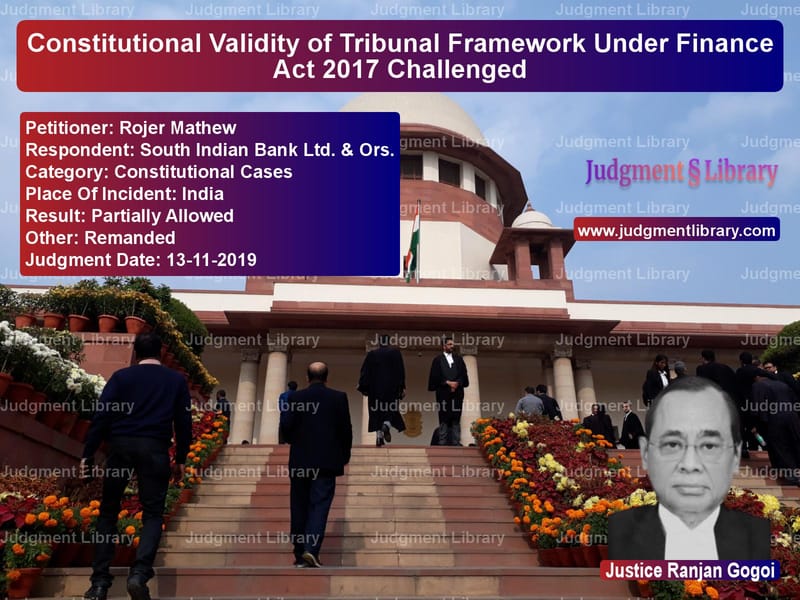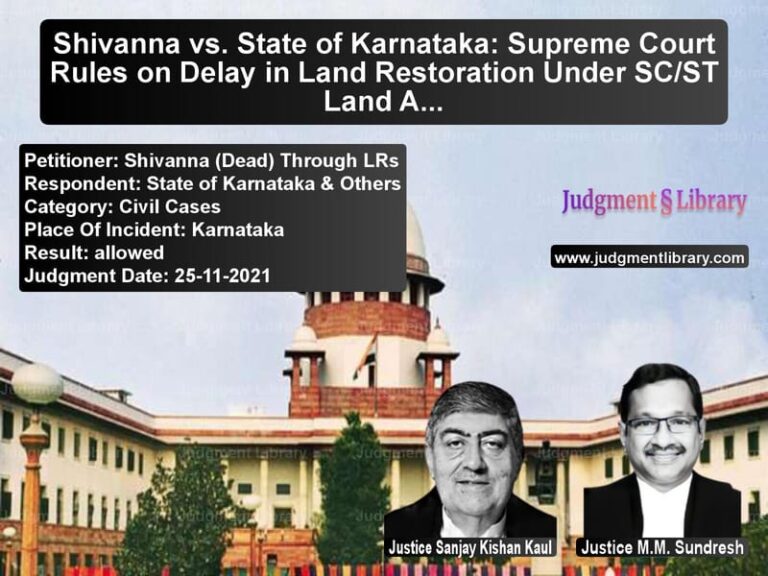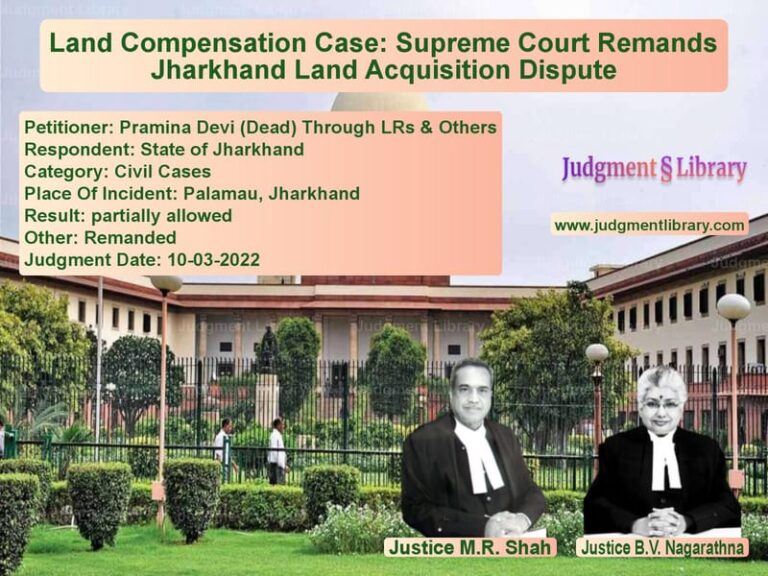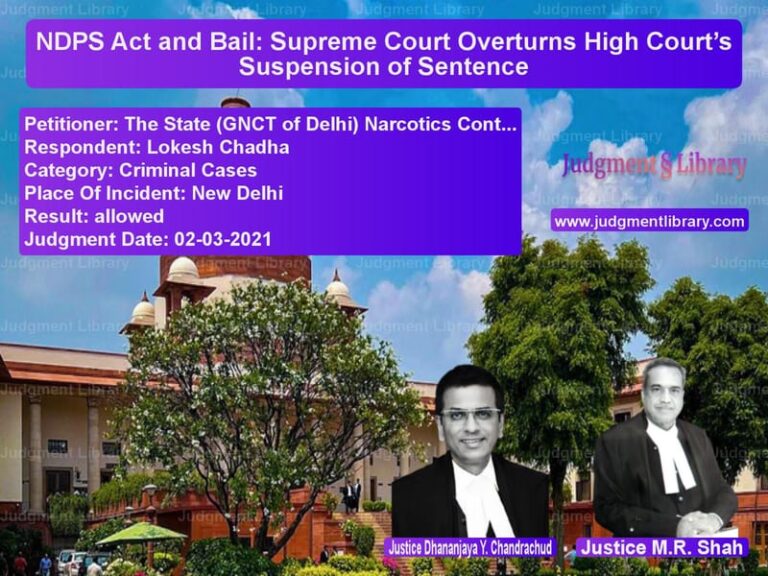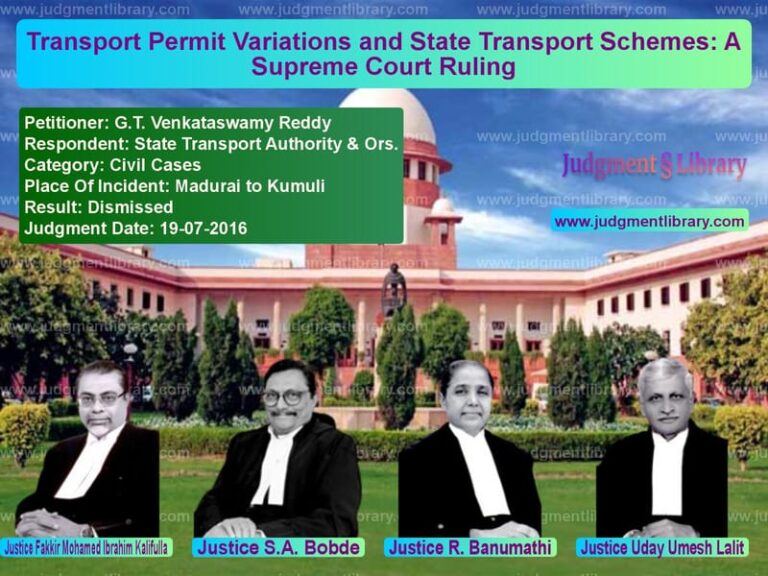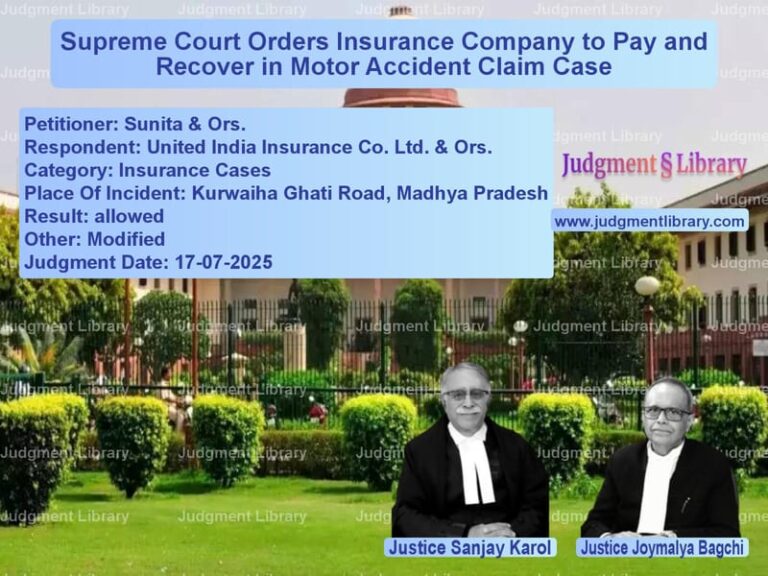Constitutional Validity of Tribunal Framework Under Finance Act 2017 Challenged
The case revolves around the challenge to the constitutional validity of Part XIV of the Finance Act, 2017, and the rules framed under it. The petitioners, including Rojer Mathew and the Madras Bar Association, argued that the Finance Act, 2017, classified as a ‘Money Bill,’ was unconstitutional as it bypassed the Rajya Sabha.
Background of the Case
The Finance Act, 2017, introduced substantial changes to the functioning of various tribunals in India. The Act led to the merger of several tribunals, restructuring their appointment processes, and altering service conditions of tribunal members. These changes were implemented under Part XIV of the Act, which led to widespread concerns about the erosion of judicial independence.
The petitioners contended that by categorizing the Finance Act, 2017, as a ‘Money Bill’ under Article 110 of the Constitution, the government bypassed the Rajya Sabha, thereby violating the principles of parliamentary democracy. They argued that the Act contained several provisions unrelated to taxation or government expenditure, which should have been deliberated upon in both Houses of Parliament.
Petitioner’s Arguments
The petitioners challenged the Act on multiple grounds, asserting:
- The Finance Act, 2017, was wrongly classified as a ‘Money Bill,’ thereby circumventing the scrutiny of the Rajya Sabha.
- The provisions of Part XIV of the Act amounted to excessive delegation of legislative power to the executive, undermining the independence of tribunals.
- The new rules framed under the Act allowed excessive control of the executive over tribunal appointments and service conditions, affecting the impartiality of quasi-judicial bodies.
- The merging of multiple tribunals into a single entity disregarded the specialized nature of adjudicatory bodies, affecting the efficiency and effectiveness of dispute resolution.
Respondent’s Arguments
The respondents, led by the Attorney General, defended the legislation, contending:
- The Finance Act, 2017, was properly classified as a ‘Money Bill’ as it dealt with the allocation and regulation of financial resources.
- The objective of the Act was to streamline tribunal operations and bring uniformity in service conditions.
- There was no violation of the doctrine of separation of powers as the changes were aimed at administrative efficiency.
- The decision of the Speaker regarding the classification of a Bill as a ‘Money Bill’ was final and not subject to judicial review under Article 122 of the Constitution.
Judgment and Key Observations
The Supreme Court held that the issue of whether the Finance Act, 2017, was rightly classified as a ‘Money Bill’ required further examination by a larger bench. The Court observed:
- The Act conferred excessive discretion on the executive in appointing and removing tribunal members, which posed a risk to judicial independence.
- The Finance Act contained provisions beyond the scope of taxation and government expenditure, raising concerns about its classification as a ‘Money Bill.’
- The independence of the judiciary was compromised due to the executive’s control over tribunal administration, affecting fair adjudication.
- The establishment of an independent National Tribunal Commission was necessary to oversee tribunal administration, ensuring fairness and impartiality.
Detailed Analysis of the Supreme Court’s Reasoning
The Court extensively examined the constitutional scheme related to Money Bills. It referred to previous cases, including:
- Justice K.S. Puttaswamy (Retd.) v. Union of India: This case emphasized the importance of constitutional safeguards against executive overreach.
- Krishna Kumar Singh v. State of Bihar: The judgment in this case discussed the necessity of parliamentary oversight in legislation involving financial matters.
- Subramanian Swamy v. Union of India: This case reinforced the principle that the separation of powers is a fundamental feature of the Constitution.
The Supreme Court underscored that the judicial independence of tribunals was crucial for fair adjudication. The Court noted that the manner in which appointments were made under the Finance Act, 2017, vested significant powers in the executive, potentially influencing tribunal members.
Implications of the Judgment
The judgment raised important questions about the limits of executive power in financial legislation. The decision had several significant implications:
- Judicial Independence: The ruling reaffirmed that the autonomy of tribunals must be preserved to ensure unbiased decision-making.
- Parliamentary Scrutiny: The case highlighted concerns about the potential misuse of the ‘Money Bill’ classification to bypass legislative oversight.
- Administrative Reforms: The Court’s suggestion to establish an independent Tribunal Commission could lead to future institutional reforms.
Conclusion
The Supreme Court’s decision in Rojer Mathew vs. South Indian Bank Ltd. marks a crucial step in upholding judicial independence and reinforcing constitutional safeguards. The ruling ensures that the classification of Money Bills does not serve as a tool for executive overreach. While the matter has been referred to a larger bench, the judgment sets an important precedent for future legislation affecting the judiciary.
Petitioner Name: Rojer Mathew.Respondent Name: South Indian Bank Ltd. & Ors..Judgment By: Justice Ranjan Gogoi.Place Of Incident: India.Judgment Date: 13-11-2019.
Don’t miss out on the full details! Download the complete judgment in PDF format below and gain valuable insights instantly!
Download Judgment: Rojer Mathew vs South Indian Bank Lt Supreme Court of India Judgment Dated 13-11-2019.pdf
Direct Downlaod Judgment: Direct downlaod this Judgment
See all petitions in Fundamental Rights
See all petitions in Constitution Interpretation
See all petitions in Legislative Powers
See all petitions in Public Interest Litigation
See all petitions in Separation of Powers
See all petitions in Judgment by Ranjan Gogoi
See all petitions in partially allowed
See all petitions in Remanded
See all petitions in supreme court of India judgments November 2019
See all petitions in 2019 judgments
See all posts in Constitutional Cases Category
See all allowed petitions in Constitutional Cases Category
See all Dismissed petitions in Constitutional Cases Category
See all partially allowed petitions in Constitutional Cases Category

